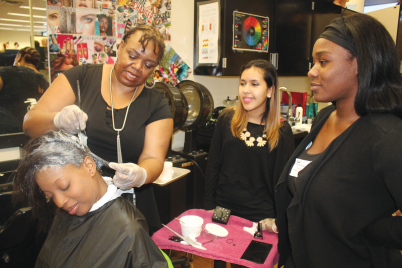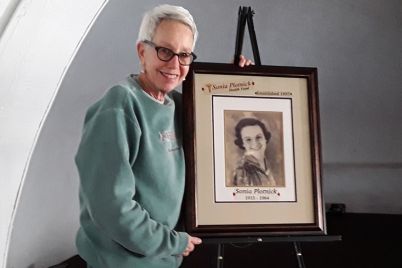By Wendy Wesley, RDN, LDN, Registered/Licensed Dietitian Nutritionist, Contributor
ST. PETERSBURG — Community-owned grocery co-ops, limitations on dollar-type stores, mobile markets, free food distribution and coolers at city-run recreation centers are a few ways the City of St. Petersburg is tackling its food insecurity issues. As our city competes with other regions for jobs and new residents, its leadership knows a healthy population is a necessity to succeed.
From an equity profile of Pinellas County by UNITE Pinellas, it is evident that the playing field is far from level. Regarding equity, specifically health equity, we know five things:
- Inequity is historical rooted in public policy and bias and is not based on personal failings
- Equity is the superior economic model
- There is a path forward. By learning more about local dynamics and conditions and exposing the root causes that underlie disparities, our community can influence changes that can create a more just, fair and equitable Pinellas County
- The levelers that are most likely to generate change are policy, institutional practices and changing the traditional narrative.
- A lack of community awareness of inequity exists nationally and in Pinellas County
Local businesses, with knowledge of what is available and how to partner, can remain profitable and level the field on food insecurity. Kenwood Organic Produce has done just that.
Through a Florida program called Fresh Access Bucks, SNAP recipients can double the value of their benefits on Florida-grown organic produce. The “bucks” are accepted at farmer’s markets, produce stands and mobile markets.
Kenwood Organic Produce, owned by Marcile Powers and Keevy McAlavay, agreed last year to accept what is known as “double SNAP,” which doubles the value of SNAP dollars on Florida-grown produce.
For St. Petersburg residents who live within a 10-mile radius of Kenwood, this also means free home delivery on a double produce box. This area includes all of southern Pinellas County.
This willingness to participate pleases Heather Henderson of Feeding Florida.
“I’m so impressed with their passion and commitment to increasing healthy food access and supporting Florida farmers,” said Henderson.
Kenwood co-owner, Powers, agrees and recalls a time when other St. Petersburg residents were in need.
“When the government shut down happened, we gave produce boxes to Coast Guard members,” said Powers. “Providing double SNAP boxes and delivering them feels the same.”
Within a 42-block of St. Petersburg’s south side are two USDA-designated food deserts where access to fresh fruits and vegetables is severely limited. For a community that struggles with transportation, the program will significantly help those in need of fresh food alternatives.
Since the closing of the area’s only full-service grocery store more than 1,000 days ago, many residents use public transportation to do their grocery shopping, which can make obtaining groceries a time-consuming and labor-intensive task. Lack of access to affordable and nutritious foods exacerbates chronic conditions like heart disease, diabetes and renal failure.
Kenwood Organic Produce’s delivery service and willingness to partner with government programs is innovative and speaks to the business owners’ desire to give back to their community.
Chambers of commerce, city, and county economic development experts, Healthy St. Pete and health planners who advocate for Health in all Policies can help local businesses solve our food insecurity problem by educating about and encouraging participation in programs like Fresh Access Bucks and other innovative solutions.
We have taken countless measurements, written pages of reports, and attended numerous conferences to glean best practices to bring back to our communities. It is now time to put resources and energy into solutions.
It is time for tangible policy and action. It is time for non-profits and the government to show businesses what is needed and possible. It is time to put resources, previously used for data collection, into a communications plan that targets local businesses with the vital message, “Here’s how you can make a difference in health equity.”
Florida SNAP and USDA facts:
- Approximately 3.5 million people in Florida participate
- 134,000 reside in Pinellas County
- The average amount of time people receive benefits is nine months
- There are two USDA-designated food deserts in south St. Petersburg
- The USDA designates an urban food desert as a census tract area with a poverty rate of 20 percent or greater where 33 percent or more of the population lives one mile from a grocery store.
For more information, you can contact Kenwood Organic Produce at 727-777-7306, stop by at 3325 5th Ave. N. St. Petersburg or visit kenwoodorganic.com.












